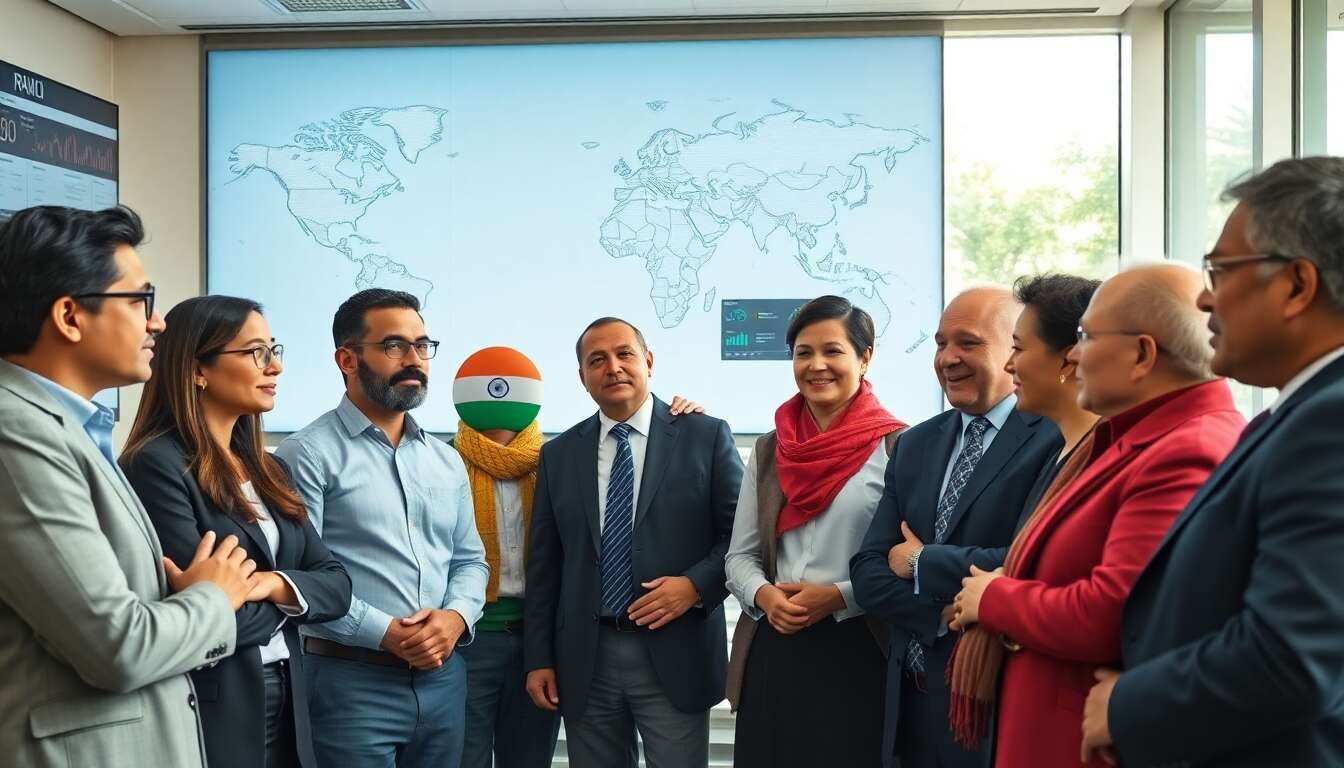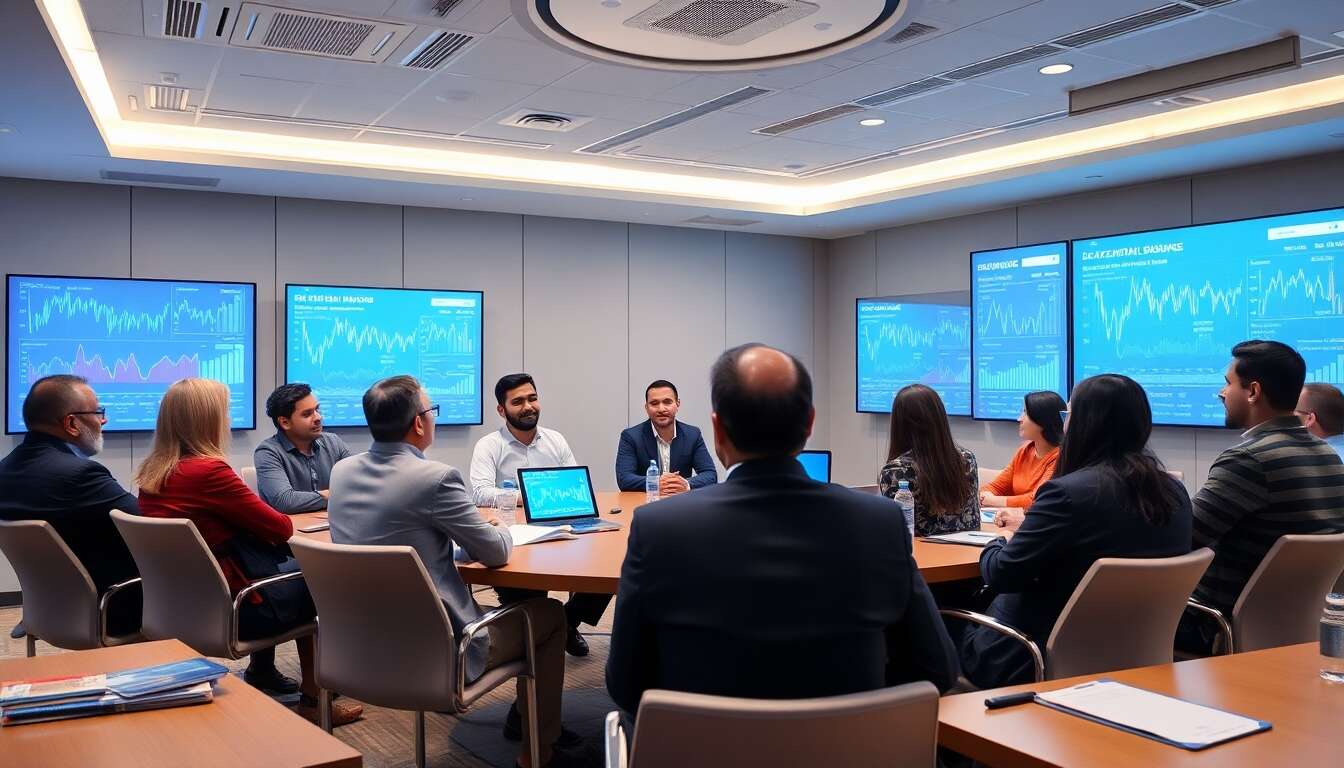The global economic landscape is undergoing significant changes with the advent of « Brics Money, » a concept designed to challenge existing monetary systems. Emerging economies, which are often overshadowed by established financial powers, are seeking new pathways to assert their influence. The introduction of a new monetary unit under the aegis of the BRICS nations could herald a shift towards a more decentralized financial structure.
Comprendre le concept de Brics Money

Definition and Scope
Brics Money refers to a proposed currency or financial system initiated by BRICS nations, comprising Brazil, Russia, India, China, and South Africa, further expanded to include new members. The aim is to establish a unified monetary framework that can potentially decrease reliance on Western financial structures, particularly the dollar.
Structure and Operation
The proposed system would operate differently from traditional currencies by focusing on using member nations’ local currencies for trade. This reduction in dependence on foreign currencies may empower emerging markets, encouraging them to trade more freely within their group without external exchange constraints.
Potential Challenges
- Establishing credibility among international markets
- Achieving uniformity across diverse economies
- Gaining acceptance from local businesses and consumers
The burgeoning concept of Brics Money invites us to explore the motivations that underpin its creation, a subject that reveals much about the aspirations and strategic goals of its proponents.
Les motivations derrière la création de Brics Money

Economic Independence
One of the primary motives is to achieve economic independence from Western financial domination. By creating a system where BRICS members can transact without the dollar, these countries seek greater autonomy in their economic dealings.
Strategic Alliances
Another motive is the strengthening of strategic alliances between BRICS members, fostering a sense of economic solidarity against Western influence. This ties into broader political agendas where economic collaboration is seen as a stepping stone for geopolitical clout.
Innovation and Growth
- Encouraging home-grown financial technologies
- Streamlining cross-border trade within BRICS
- Mitigating currency exchange rate risks
With such motivations, the role of Brics Money becomes pivotal in reshaping the financial landscape, particularly in how it influences decentralization and the resultant impact on emerging economies.
Décentralisation et impact sur les économies émergentes
New Trading Dynamics
Decentralization brought about by Brics Money could lead to new trading dynamics. It enables emerging economies to circumvent traditional trade barriers and currency volatility associated with monopolar systems.
Financial Autonomy
This restructuring also offers greater financial autonomy to these nations. By minimizing dependence on the dollar, countries can exercise enhanced control over their economic policies and inflation rates.
Empowerment of Local Economies
- Fostering entrepreneurship
- Improving access to international markets
- Stabilizing local currencies
The exploration of decentralization inevitably leads to discussions on whether Brics Money could potentially serve as an alternative to the dollar, a debate rife with economic implications.
Brics Money : une alternative au dollar ?

Feasibility and Impact
The feasibility of Brics Money functioning as a viable alternative to the dollar largely depends on its acceptance and use within financial markets. If adopted widely, it could shift the economic balance by reducing global dollar dependency.
Comparison with the Dollar
| Aspect | Brics Money | Dollar |
|---|---|---|
| Usage | Regional | Global |
| Control | Decentralized | Centralized |
| Stability | Developing | Established |
Market Reactions
- Possible shifts in foreign investments
- Exchange rate volatility
- Market skepticism and initial hesitance
As we examine these points, it becomes evident that the introduction of Brics Money impacts not only BRICS nations but also has significant repercussions for their economy.
Répercussions économiques attendues pour les pays membres
Increased Trade Opportunities
For BRICS members, Brics Money could foster increased trade opportunities by streamlining processes and reducing currency conversion costs. This would make intra-BRICS trade more attractive.
Reduction of Economic Vulnerabilities
The proposal might help in reducing economic vulnerabilities associated with dollar fluctuations, thereby stabilizing member economies against external financial pressures.
Enhanced Economic Positioning
- Improved diplomatic leverage
- Potential for investment growth
- Greater influence in global financial institutions
While these benefits are promising, they also come with challenges and opportunities that must be navigated carefully, especially for the developing economies involved.
Défis et opportunités pour les économies en développement
Challenges Facing Developing Economies
The emergence of Brics Money presents significant challenges for developing economies, such as ensuring currency stability and building financial infrastructure that can support the new system.
Opportunities for Growth and Innovation
Despite the challenges, there are numerous opportunities for growth. Developing economies could harness new technology and financial innovation, integrating into a broader global market in previously inaccessible ways.
Collaborative Development
- Shared technological advancements
- Collaborative policy-making
- Increased research and development
With a firm grasp of these challenges and opportunities, we can better anticipate the future prospects of Brics Money and its role in shaping the economies it touches.
Les perspectives d’avenir pour Brics Money et les économies émergentes
Long-term Vision
Brics Money has the potential to redefine global trade paradigms, positioning itself as more than a mere alternative but a cornerstone of economic collaboration. The long-term vision sees it supporting sustainable development within its member nations.
Scalability and Sustainability
Ensuring the scalability and sustainability of Brics Money is key. It requires transparent governance structures and the consistent backing of emerging markets.
Global Economic Integration
- Synergies with non-BRICS nations
- Harmonizing policies with global standards
- Creating a conducive environment for international partnerships
These perspectives highlight the potential for a decentralized economic future driven by collaboration and resilience.
In summary, the push towards a decentralized economic system through Brics Money represents a transformative opportunity for emerging economies. By challenging the status quo of the established financial order, BRICS nations are paving the way for a multipolar world that favors innovation and inclusivity over dependence. As these developments unfold, they offer a glimpse into a future where economic empowerment extends beyond the confines of traditional dominions, promising exciting possibilities for nations on the rise.



